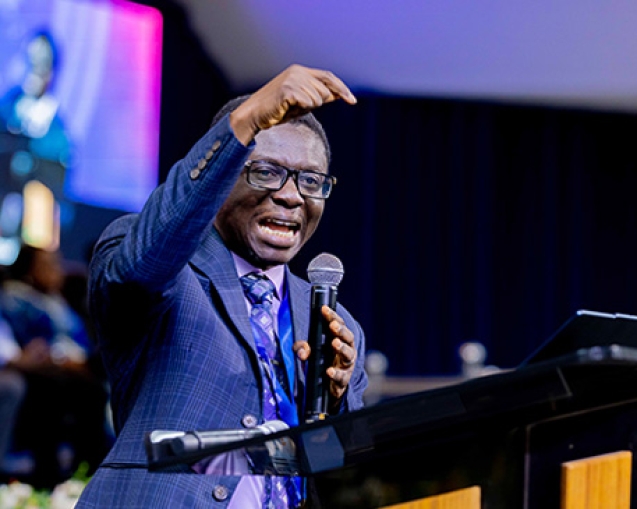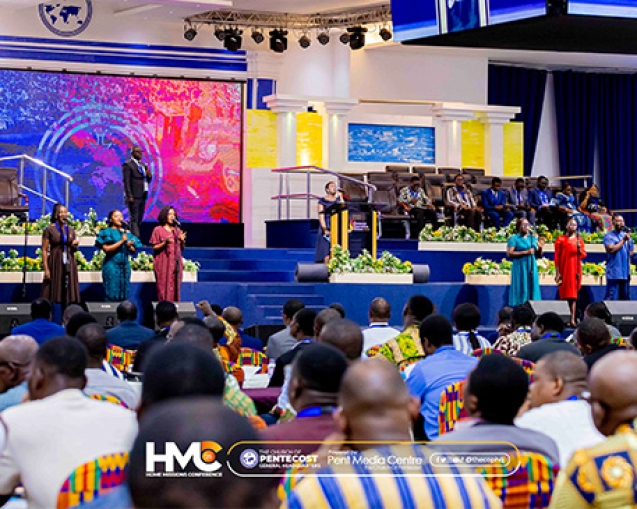One of the downsides of humanity’s existence is mourning. It is not a pleasant experience when it happens to an individual or a group. Perhaps, the height of mourning is when the life of a dear one is lost. In various societies, the rite of passage for the dead into the afterlife could be from sheer elaborate extravagance or pauper privation to depict the extent of pain. Funerals date back into antiquity. In the biblical narratives, we encounter funerals such as that of Jacob running into days in the Old Testament and processions of mourners encountered by Jesus and that of Dorcas in the New Testament.
In Ghanaian society, funerals serve not only as a time to mourn the departed but also as a time for reflection on life and its meaning, socialisation, reunions, and even the settlement of protracted disputes or contracting of marriages in memory of the deceased. Funerals also come with an economy of their own, from caterers, undertakers, pallbearers, spinners, coffin makers, providers of canopies, and chairs, among others. It is no surprise that there is a discussion in the policy sector to consider putting how funerals are observed in Ghana on the tourism map.
Unfortunately, the economic and social benefits of funerals have been hyped to the extent that organising funerals in Ghana has become a whole burden that makes people grieve over the cost more than grieving the loss of life. It is documented that some people who wail uncontrollably when they hear of the demise of a loved one are not just mourning the life gone but also contemplating how to come by resources to organise huge funerals in their memory. It is as if when the funeral does not meet the expectations of attendees, then you have failed to eulogise the dead as it should be, and at times people have been accused of being happy they have lost a loved one because they failed to spend so much on their funerals. It is this sad narrative that has gradually pushed Ghanaian society, especially southern Ghana, into another monster that needs to be quickly checked – one-week observation.
Traditionally, the one week was observed by close kin of the deceased. It has a historical origin from the times when orthodox medicine was not advanced, and the dead were preserved at home for a week just to be sure they were not in a coma or just collapsed. After a week, the family was sure to announce the person as dead, hence the nomenclature ‘One Week Observation’. It was to observe a week after the passing of the individual. It was at this time that the head of the family (abusua panyin) met with the close-knit group of those who matter in the family to deliberate on when to observe the funeral of the deceased. It was a solemn and pensive occasion held away from public view, and not every family member was allowed to attend.
It therefore beats the imagination how this has been turned into another albatross around the neck of society and how it is gradually getting to suffocate the living. Three things bewilder me about the observation of one week for the deceased as it is currently practiced. First, the one-week celebration has been turned into a mini-funeral, a kind of pre-funeral rehearsal where people are invited to come mourn the dead. I have observed with concern one-week observations where the only thing that showed it was not the main funeral was that the corpse was missing in action. Everything that was to be done at the main funeral was performed at the one-week observation. I wondered what else was to be done at the main funeral after all this extravagance and pageantry.
Another concern is that the ‘one week’ has been turned into one month, two months, six months after the death of the person. One is just left without words as to what accounts for that and what is the significance of the occasion any longer. At times, before the ‘one week’ held many weeks after the incidence of death, the date for the main funeral, which is the main reason for the observation, is already known to anyone who cares to know. Why then is the ‘one week’ still held? In fact, why is it still called ‘one-week observation’ when it is being held after one week of the demise?
The one that hit me hard was when a widower was compelled to organise the one week of his late wife an hour away from the same day the main funeral was held. What else could be so devastating for someone who has lost his dear wife than to hold two ‘funerals’ for the deceased the same day at the same venue? What is the essence?
My third concern is how gradually, an observation meant for the close-knit family has been made a ‘compulsion’ for all, and gradually the church is being coerced into officially getting involved. An event not meant for the public is gradually being forced down the throats of everyone. People even call to accuse friends, church members, and pastors for not attending the one-week observation of the passing of a deceased. It has got to the point where church buildings, instruments, chairs, and canopies are requested to be used for such events. These requests are made again during the main funeral. What else can be so stressful for church leaders than this? To refuse is to be tagged unsympathetic, a culture-mix fit, apathetic, etc.
It is about time our traditional leaders, family heads, and the church responded to this situation to curtail it from blowing up into something else beyond the menace it is becoming or has become now. In times past, when wake-keeping, another practice that lost its significance in the face of modernity and advancement in science, threatened our sanity, some chiefs and church leaders quickly responded to the threat, and we have a modicum of sanity prevailing now on the issue of wake-keeping. I believe we are presented again with a time to show leadership again. Let’s mourn the dead without burdening the living unnecessarily. Or could there be a meaningful missing link I and others who are concerned have missed in the contemporary one-week observation?
Written by Pastor George Osei-Asiedu


















